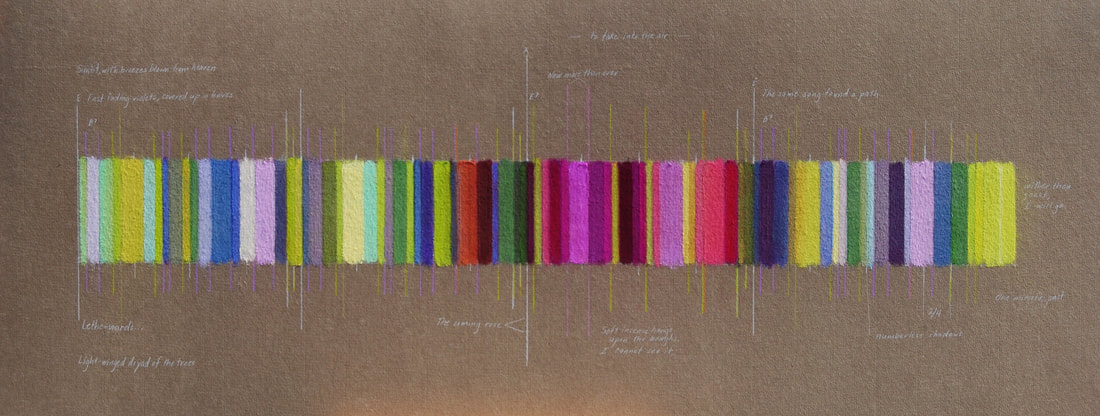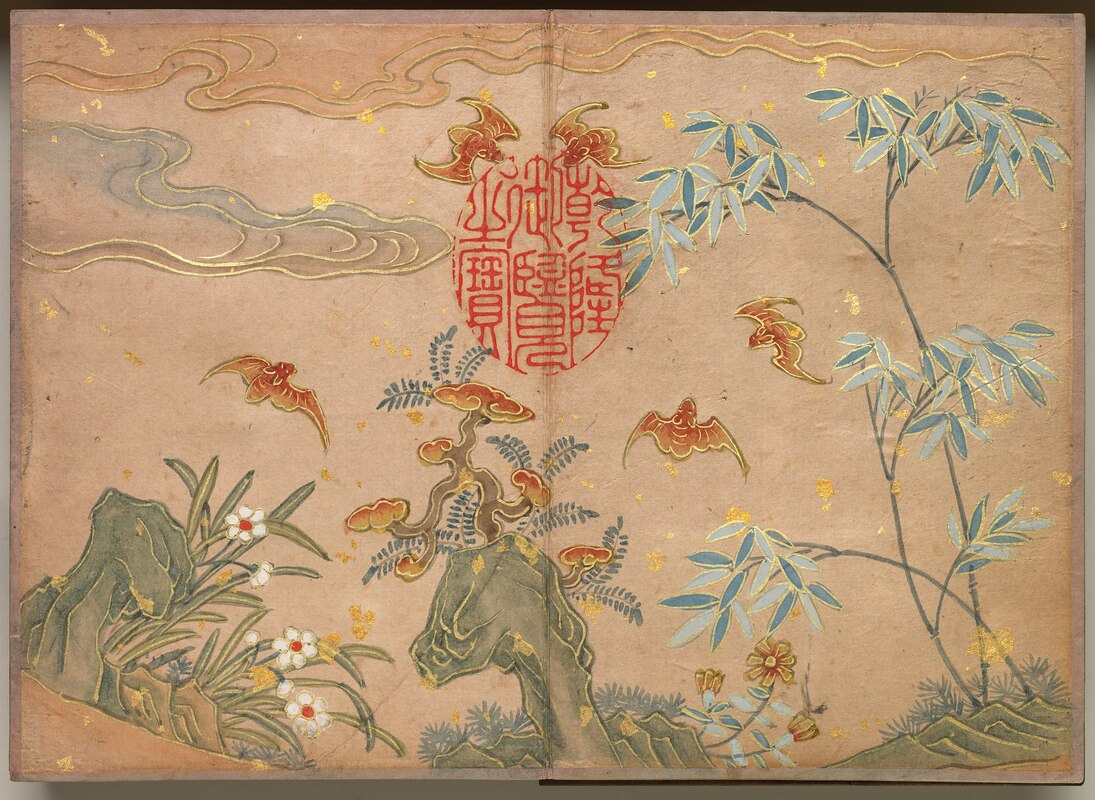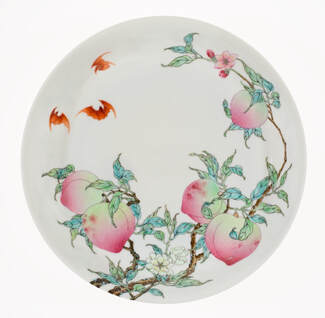Light-Winged Dryad of the Trees
Bats have been sacred in Chinese culture for thousands of years. In particular, they represent good fortune, and they are often found in artwork and decorations along with peach blossoms. According to myth, sacred peaches, like ambrosia in Greek mythology or golden apples in Norse, grant immortality to those who eat them. Light-Winged Dryad of the Trees honors the connection between bats, peaches, and immortality - not to mention the benefits of bats as pollinators of fruit trees.
Light-Winged Dryad of the Trees is based on the harmonic structure of the instrumental Little Martha by Duane Allman, from the Allman Brothers' 1972 album Eat a Peach.
The title and text come from John Keats famous poem, Ode to a Nightingale, with the farthest right line on the drawing from the Book of Ruth.
The Book of Ruth - The Bible |
Ode to a Nightingale |
Image credit - Pixabay Peach blossom banner


